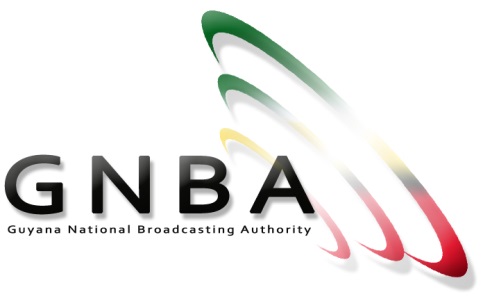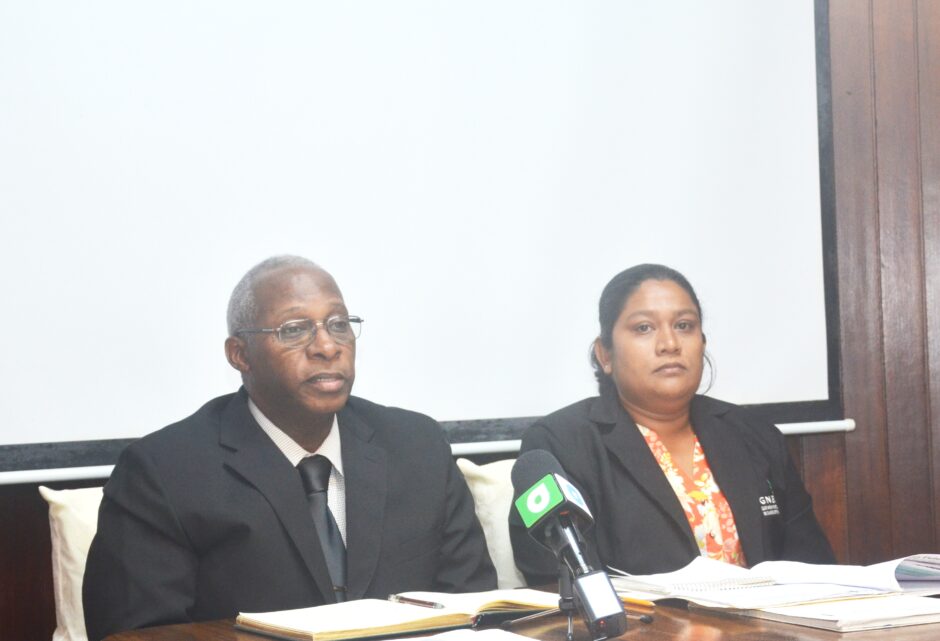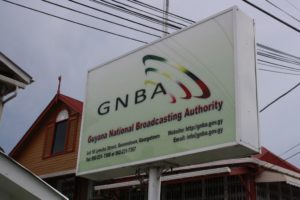GNBA Head says Stabroek News failed to meet requirement for radio licence
Guyana National Broadcasting Association, (GNBA) has refuted reports that it willfully denied the Guyana Publications Incorporated, (Stabroek News), a radio broadcast licence. In response to an article published by Stabroek News last Sunday, GNBA Head, Leslie Sobers, noted that the GNBA is obliged to grant licences to persons or entities, which qualify or meet the criteria for broadcast. Alluding to Stabroek News claims, Sobers noted that the GNBA has no reason to deny any suited candidate a licence. He said however that the newspaper failed to satisfy grounds for granting the licence.He said that the GNBA scrutinised the application and recognised that there were a number of requirements that the entity failed to meet. GNBA officials said, too, that by that time the frequency management unit made the discovery that all the primary frequencies on the spectrum had been distributed. Sobers said it is important to note that Stabroek News only became fully compliant for radio licence by October 6, 2018.
The GNBA Head noted that the newspaper corporation, interalia, needed to establish a separate company, to satisfy the requirement. He said that Stabroek News belatedly met the requirements. According to Sobers, the processing of licences and the assessment of applicants take some time.Sobers noted that the newspaper article gave a one-sided account of what transpired. “The chronological detail in that article cannot be denied in terms of when letters were sent and dates so forth. However the details do not address actions and circumstances from the point of view of the GNBA.” The GNBA official noted that there is a list of persons who had applied for broadcast licence long before Stabroek News Stabroek News applied for broadcast licence for the first time in February 2016 and the current board was not in place.
Sobers noted that there are a number of persons and entities who have applied for broadcast licences long before and have been on the waiting list because they, too, have not met the criteria. He stressed that the GNBA operates at a professional level. “We will not purposefully exclude anyone from obtaining a electromagnetic spectrum to broadcast. The spectrum belongs to the Guyanese people. We are the merely caretakers of it. “We are merely in a regulatory position to ensure that all our people benefit from it, in the best possible way. It is not GNBA property, so we don’t deny Guyanese or local firms access to the spectrum.” Sobers emphasized, too, the GNBA does not issue frequencies.
“The GNBA only authorises broadcasts. The frequencies are managed by the National Frequency Management Unit, (NFMU) or its successor, [the new telecoms agency).”
Stabroek News Editor in Chief, Anand Persaud, was quoted in the newspapers as saying that he not convinced by the reasons given by the GNBA for not granting the licence. The newspaper reported that Persaud found the explanation flimsy and pointed to the fact that the company had applied for a licence since 1993. Last Sunday, Shaleeza Khan, General Manager of Guyana Publications Incorporated (GPI), the publisher of the Stabroek News and Sunday Stabroek newspapers, reported that the company has been treated unfairly by the Guyana National Broadcasting Authority (GNBA), which recently denied its application for a primary zone radio licence. Khan’s comments were made following the receipt of a letter from the GNBA informing her that the company’s application for a radio licence for the operation of a station in the primary zone, which includes Georgetown, could not be processed.
The letter, which is dated May 7, 2019, and signed by the GNBA’s Board Secretary, Rianna Bowman, acknowledged that in 2018 the company applied for a Radio Broadcasting Licence to operate a radio station within the “Primary” zone. The primary zone covers Georgetown, Region Three up to the Essequibo River, all of Region Four and Region Five east of Region Four to the Abary River.
Source: Kaieteur News



